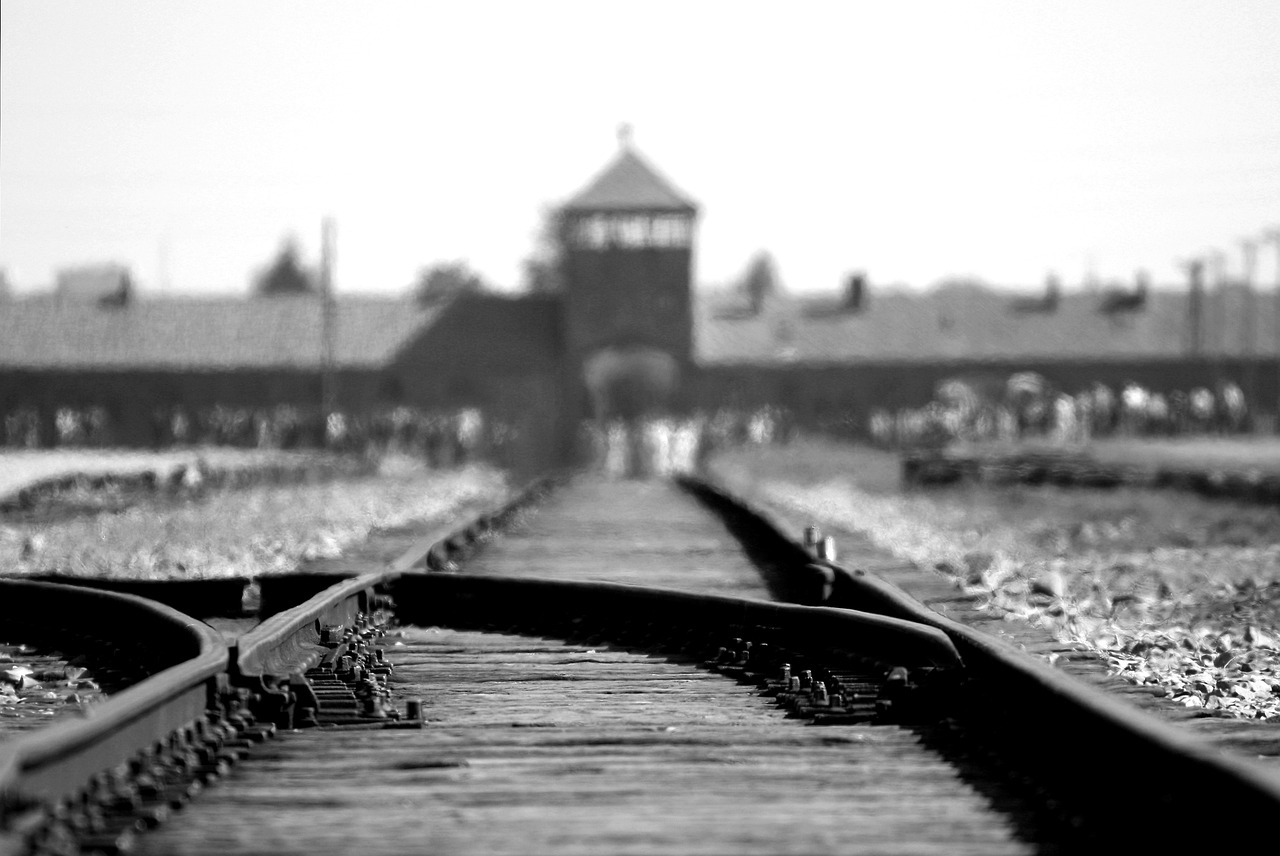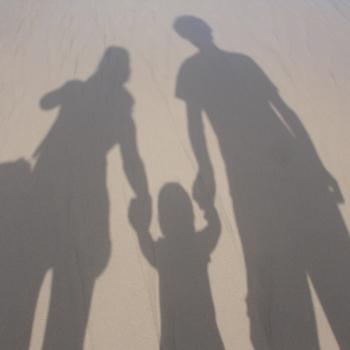*Editor’s Note: This is a contribution from Brandon Andress, whose book, And So By Fire, is out now on Quoir Publishing
The warm radiance of the July sun quickly faded into a dank, unwelcome coolness. Thick, imposing cement walls surrounded us on each side as a silent sobriety paralyzed our group. At once, the gas chamber door closed behind us.
Moving slowly to one side through the crowd, I rested my back against the cold, hard wall and closed my eyes. As my palms touched the unsympathetic surface, a small, metal door opened above. I imagined the terror of the men, women, and children who stood naked in that exact same place, only sixty years before me, awaiting their deaths.
My journey in Auschwitz began earlier in the day while walking through rooms adorned with the pictures, names, and stories of the victims. They were husbands, wives, and children. They were brothers and sisters, grandmas and grandpas, aunts and uncles. Each of them a person with livelihoods, relationships, hopes, and dreams.
But it was not long before these rooms gave way to even more rooms that displayed how their humanity had been successively stripped away.
Through one window, suitcases with family names written on them towered to the ceiling. In the next window, a gruesome pile of prosthetic limbs that had been taken away from amputees filled the room. Through yet another window, tens of thousands of eyeglasses. In another window, mountains of shoes. And through the last window, ghoulish mounds of shaved human hair.
My eyes opened to the sound of the gas chamber door as I numbly exited. The slow-moving single file line took me past the furnaces made for human bodies. It was at that moment when I came to a horrific realization. Once a person’s humanity has been taken away, killing them is actually the easy part.
The Pathway to Dehumanization
It would be easy to believe that this pathway to dehumanization only began in Auschwitz through the taking away of names, the stripping of clothing, and the shaving of hair. It may be even easier to believe that this dehumanization was isolated in human history, brought about only by a maniacal leader. And while both beliefs are true, they do not fully capture the entire trajectory of this dehumanization or how we are just as susceptible to following the same path.
Our tendency is to see the Holocaust as an aberrational evil, isolated without cultivation. Even more, it is easy to view it as if it just appeared without successive shifts in the collective cultural psyche at the time. But this kind of historical ignorance begs for history to repeat itself.
The pathway to Auschwitz began with name-calling and stereotyping. It grew into enemy-labeling and the creation of a we versus they mindset. It evolved into dehumanizing language and images depicting others as morally inferior, which then led to the rationalization of violence.
A Similar Path
If I am to be honest about our country right now, it appears as if we are following a similar path. I am not saying that we are necessarily heading toward a Holocaust. But we do share many of the same similarities in the precursors. However, the biggest difference between then and now is that we have the interconnectedness of social media.
This fact alone ought to make each one of us pause.
By virtue of social media, ideological groups can now coalesce without the constraints of geographical boundaries. They can instantaneously mobilize to force or impose their will and beliefs upon others. As a result, “melting pot” idealism, which has traditionally celebrated and championed the richness of diversity, is being supplanted by amorphous ideological “nations.”
Not only has social media siloed us into these self-reinforcing echo chambers, its depersonalized nature has made us increasingly careless, condescending, disrespectful, and hateful toward others, especially toward those of other ideological “nations.”
This the breeding ground of name-calling and stereotyping. It is where enemies are constructed and declared morally inferior or subhuman. And then, within these all-or-nothing ideological “nations,” the enemies must be silenced, canceled, threatened, put out of business, overthrown, kidnapped, or killed.
We no longer live in a time when the question is, “How will we come together in America?” We are at the beginning of America no longer existing. The ground upon which we stand now belongs to many ideological “nations” within a land mass that believe they cannot coexist, nor abide by each other’s governance.
An Appeal
One of the most asked questions after the Holocaust was, “Where was God?” I may be wrong, but as I look at the path we are taking right now and see where we are heading, I believe I know the answer to that question.
God was there, as God is here now, appealing to all people to resist the ideological forces that are working to strip others of their humanity. Imploring all people to travel no further down the demeaning path of name-calling, caricaturing, and stereotyping. Calling all people to peacefully, but vociferously, oppose those who refer to others as morally inferior or subhuman. Beckoning all people to stand in solidarity against all acts of violence against all people.
While it would be easy to blame our leaders and social media for the path we are taking, the truth is that we have created this reality ourselves. But we also have an opportunity to change our course together. Now more than ever, we need reasonable people to rise up and come together as a new community. We need a new people that will no longer contribute to nastiness and division. We need a new people that will lovingly and peacefully push back the hateful extremes. We need a new people, not beholden to ideology, but who will choose to walk humbly, act justly, and love mercy for all. For it is only this path where our shared humanity will survive and flourish.













